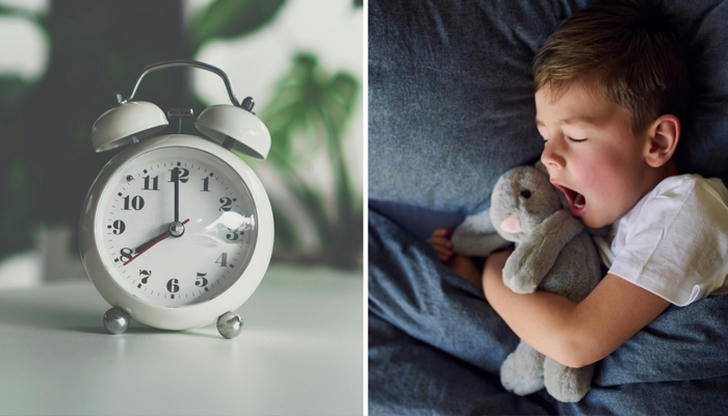The Importance of Sleep Hygiene: Creating a Bedtime Routine for Better Rest
Sleep is essential to our well-being, affecting everything from our mood and cognitive function to our immune system and overall health. However, many people struggle to achieve restful sleep, often due to poor sleep hygiene. Sleep hygiene refers to a set of practices and habits that promote consistent, uninterrupted sleep. By creating a bedtime routine and following effective sleep hygiene strategies, individuals can improve the quality of their rest, leading to better physical and mental health. In this article, we will explore the importance of sleep hygiene, the key elements of a healthy sleep routine, and practical tips for getting better rest.

What is Sleep Hygiene?
Sleep hygiene refers to the habits, behaviors, and environmental factors that contribute to good sleep. Just as maintaining good hygiene habits—such as washing hands or brushing teeth—helps maintain physical health, sleep hygiene plays a key role in ensuring we get quality sleep. Poor sleep hygiene can lead to sleep disturbances such as insomnia, restlessness, and difficulty falling or staying asleep. Good sleep hygiene, on the other hand, creates a foundation for restful, rejuvenating sleep.
Sleep hygiene isn't just about sleeping in a comfortable bed. It includes a range of habits that help signal to your body that it's time to wind down, relax, and prepare for a restful night.
Why Sleep Hygiene Matters
Sleep affects virtually every aspect of our lives. When we fail to get adequate rest, our physical and mental health suffer. Poor sleep hygiene can result in:
Mood and Mental Health
Sleep deprivation is strongly linked to mental health issues such as anxiety, depression, and irritability. Consistent, restful sleep helps regulate mood and emotional resilience.
Cognitive Function
Sleep is crucial for cognitive processes like memory consolidation, learning, and problem-solving. Poor sleep can lead to difficulty concentrating, decreased productivity, and impaired decision-making.
Physical Health
Sleep plays a significant role in immune function, cardiovascular health, and metabolism. Chronic sleep deprivation can increase the risk of conditions like heart disease, diabetes, and high blood pressure.
Immune System
Quality sleep strengthens the immune system, helping the body fend off infections. Inadequate sleep weakens immunity, making it harder to fight off illness.
By prioritizing sleep hygiene, individuals can mitigate these risks and support their overall well-being.
Key Elements of Sleep Hygiene
Consistent Sleep Schedule

One of the most important aspects of good sleep hygiene is maintaining a consistent sleep schedule. Going to bed and waking up at the same time each day, even on weekends, helps regulate your body's internal clock (circadian rhythm). When you stick to a consistent routine, your body knows when to prepare for sleep and when to wake up, leading to better sleep quality.
Why it works: Your body’s circadian rhythm relies on regularity. When you wake up and go to bed at consistent times, your body naturally adjusts to the pattern, making it easier to fall asleep and wake up feeling refreshed.
Creating a Relaxing Bedtime Routine
Your pre-sleep activities play a significant role in how easily you fall asleep. Creating a calming bedtime routine signals to your brain that it's time to relax. Avoid stimulating activities—such as working, watching TV, or using electronic devices—at least an hour before bedtime. Instead, engage in activities that promote relaxation, such as reading, journaling, or practicing deep breathing exercises.
Why it works: Your brain associates certain activities with wakefulness and others with relaxation. Engaging in calming activities like reading a book or practicing mindfulness helps to lower stress levels, making it easier to transition into sleep.
Optimal Sleep Environment
Creating an environment that promotes sleep is crucial for sleep hygiene. Your bedroom should be a sanctuary designed for rest and relaxation. Consider the following factors:
Comfortable Mattress and Pillows: Invest in a high-quality mattress and pillows that provide adequate support and comfort for your sleep needs.
Room Temperature: Keep your bedroom cool, ideally between 60-67°F (15-20°C), as a cooler environment promotes better sleep.
Minimize Light and Noise: Use blackout curtains to block out light and consider earplugs or white noise machines if you are sensitive to noise. A dark, quiet room signals to your body that it’s time to wind down.
Why it works: A calm, comfortable environment helps signal to your body that it’s time to rest. Factors like temperature, light, and noise can interfere with your body’s ability to relax and enter deep sleep.
Limiting Caffeine and Alcohol
Caffeine and alcohol can interfere with your sleep patterns, despite their initial stimulating or relaxing effects. Caffeine, found in coffee, tea, and some sodas, is a stimulant that can remain in your system for hours, making it difficult to fall asleep. On the other hand, while alcohol may help you fall asleep faster, it disrupts the later stages of sleep and reduces sleep quality.
Why it works: Caffeine blocks adenosine, a neurotransmitter that helps promote sleep, and delays the onset of sleep. Alcohol may initially induce drowsiness but negatively affects sleep cycles, preventing deep restorative sleep.
Physical Activity and Its Role in Sleep

Regular physical activity can significantly improve sleep quality by promoting relaxation and helping to regulate your circadian rhythm. Engaging in exercise during the day can help you feel more tired at night, making it easier to fall asleep.
Why it works: Physical activity increases the body's production of endorphins, which can reduce stress and promote relaxation. However, avoid exercising too close to bedtime, as it may increase adrenaline levels and make it more difficult to sleep.
Tips for Sticking to a Bedtime Routine
Set a Reminder: Use a nightly alarm or reminder to help you stick to your bedtime routine. A reminder will signal when it's time to begin winding down for the night.
Gradually Adjust Your Sleep Time: If you're trying to change your sleep schedule, do so gradually—about 15 minutes earlier each night—until you reach your desired bedtime.
Incorporate Relaxation Techniques: Consider adding meditation, deep breathing, or progressive muscle relaxation to your bedtime routine to help calm your mind.
Avoid Naps Late in the Day: While naps can be refreshing, avoid napping too late in the day, as it can interfere with your ability to fall asleep at night.
Common Sleep Challenges and Solutions
Stress and Anxiety

If you’re struggling with stress or anxiety, consider journaling before bed to express your thoughts. Engaging in relaxation exercises can help clear your mind and reduce stress.
Overactive Mind
If your mind tends to race when you try to sleep, techniques like guided imagery or listening to calming sounds can help focus your mind on something peaceful and allow you to drift off.
Sleep Disruptions
If noise or light pollution is an issue, consider using a white noise machine, earplugs, or a sleep mask to block out disturbances.
When to Seek Professional Help
If sleep problems persist despite efforts to improve your sleep hygiene, it may be time to consult a healthcare provider. Conditions such as sleep apnea, restless leg syndrome, or chronic insomnia may require medical attention and treatment.
Conclusion
Sleep hygiene is essential for achieving high-quality, restorative sleep. By creating a bedtime routine that incorporates consistent sleep schedules, relaxing activities, and an optimal sleep environment, you can improve your overall sleep quality. These habits, combined with proper attention to factors like diet, physical activity, and stress management, can lead to better sleep and enhanced well-being. If sleep issues persist, don’t hesitate to seek professional guidance. Prioritize your sleep hygiene for a healthier, more energetic, and productive life.
